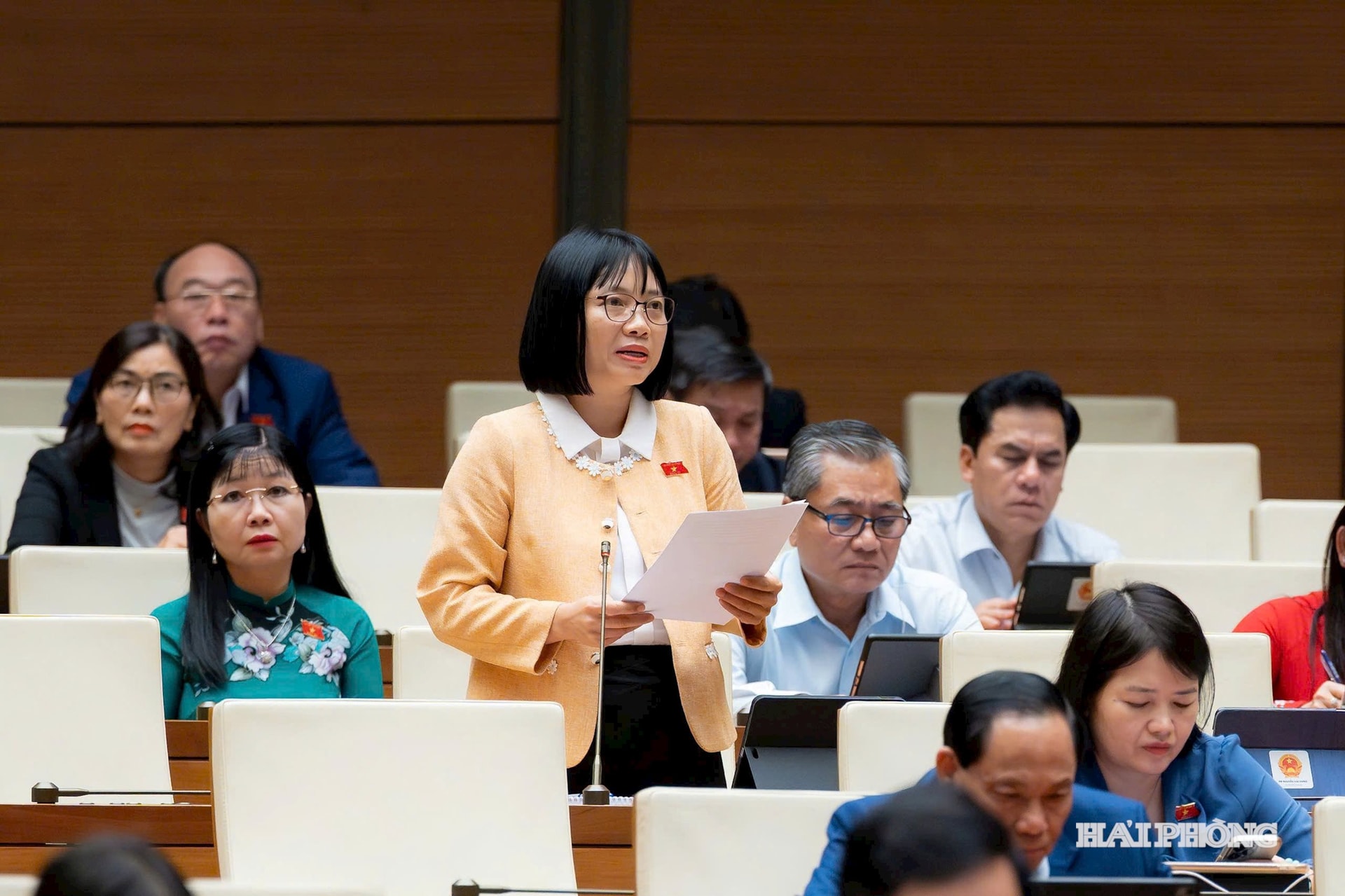
On the afternoon of November 10, the National Assembly discussed in the hall the Population Law Project and the Disease Prevention Law Project.
Speaking on the draft Population Law, delegate Nguyen Thi Viet Nga, member of the City Party Committee, Deputy Head of the National Assembly Delegation of Hai Phong City, expressed her agreement that the development and promulgation of the Population Law is extremely necessary.
To continue perfecting the draft, delegate Nguyen Thi Viet Nga pointed out 3 points that need to be studied, revised and supplemented.
Currently, the draft regulation stipulates that when giving birth to a second child, women are entitled to an additional month of maternity leave. Delegates assessed that this is a regulation that will receive the agreement of many mothers, but needs to be carefully considered.
According to delegates, this regulation could unintentionally become a barrier for female workers and increase the risk of gender discrimination in recruiting and employing female workers because when extending maternity leave, businesses will tend to hesitate to recruit or arrange female workers for important positions due to concerns about work interruptions and additional costs.
In addition, some women today tend to value their careers, especially young, high-quality workers. For this group, the policy of increasing maternity leave may create a fear of having a second child due to the worry that longer absences will affect their promotion opportunities and work performance evaluation.
In this case, delegate Nguyen Thi Viet Nga suggested that there should be open regulations, with distinction between occupational groups, industries, and regions before application; at the same time, additional measures should be added to support businesses, reduce costs when businesses employ female workers, and have policies to ensure equal promotion opportunities for women after maternity leave.
"Instead of just focusing on extending maternity leave for women, it is necessary to expand more substantial support policies to reduce the burden on women in giving birth and taking care of children," said delegate Nguyen Thi Viet Nga.
One of the policies proposed by the delegate is to develop a system of nurseries and childcare facilities for children from 6 months old, creating conditions for women to return to work sooner if they need to.
Delegate Nguyen Thi Viet Nga suggested that it is necessary to change the mindset in policy making, and that it should be regulated that both husband and wife can take long leave to take care of a newborn child instead of only requiring women to take long leave as is currently the case.
Delegates suggested that a flexible mechanism could be considered, in which the total leave time for both spouses would not exceed 7 or 8 months, depending on the family's choice of allocation. This approach would ensure that children are cared for and promote the sharing of responsibilities between father and mother, reducing pressure on women in the postpartum period.
In reality today, with the support of breast milk preservation equipment and tools, mothers do not necessarily have to be with their children constantly but can still ensure that their children are exclusively breastfed for the first 6 months of life as recommended by the health sector.
Delegate Nguyen Thi Viet Nga also proposed adding measures to maintain replacement fertility.
"The draft is proposing many effective measures to maintain the replacement fertility rate. I propose to consider support measures for infertile couples who have difficulty having children. In fact, infertility is not uncommon today, and having appropriate support will contribute practically to maintaining the replacement fertility rate, while improving population quality," said delegate Viet Nga.
The third solution proposed by the delegate is to regulate reasonable population distribution. Regulating population distribution policies is extremely necessary to ensure even population growth in localities and regions. However, in addition to regulating programs and projects for local development as in the draft, special attention should be paid to connecting and developing information technology, especially for high-quality labor groups, office workers, and workers who can work remotely.
At the same time, it is necessary to maximize the advantages of online working and remote working. This is an inevitable trend in the context of digital transformation and can completely become an effective tool to reduce population pressure on large cities and administrative centers.
SNOW AND WINDSource: https://baohaiphong.vn/can-nhac-tang-thoi-gian-nghi-thai-san-cho-ca-vo-va-chong-526243.html





![[Photo] Prime Minister Pham Minh Chinh attends the annual Vietnam Business Forum](https://vphoto.vietnam.vn/thumb/1200x675/vietnam/resource/IMAGE/2025/11/10/1762780307172_dsc-1710-jpg.webp)
![[Photo] Prime Minister Pham Minh Chinh attends the Patriotic Emulation Congress of the Ministry of Foreign Affairs for the 2025-2030 period](https://vphoto.vietnam.vn/thumb/1200x675/vietnam/resource/IMAGE/2025/11/10/1762762603245_dsc-1428-jpg.webp)






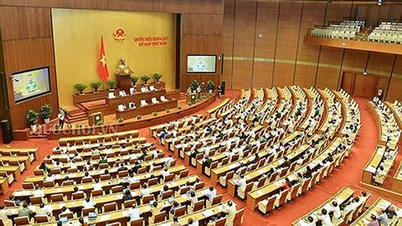

![The person who 'broke the fence' for Dat Cang's agriculture: [Part 2] Preserving the value of Doan Xa land](https://vphoto.vietnam.vn/thumb/402x226/vietnam/resource/IMAGE/2025/11/10/1762727497156_2926-nguoi-xe-rao-mo-loi-cho-san-xuat-nong-nghiep-dat-cang-165925_730.jpeg)





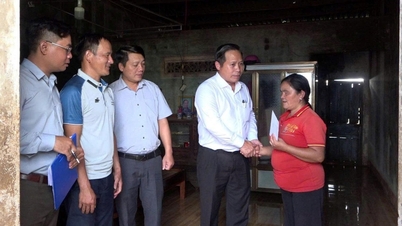




























































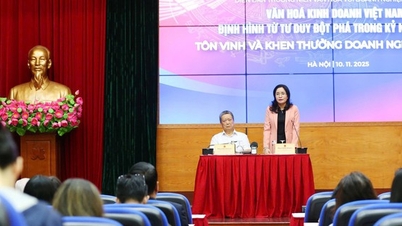








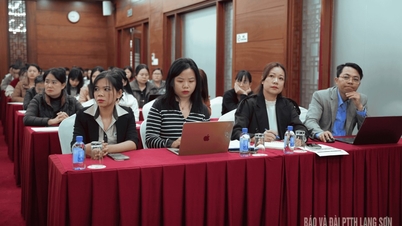


![Dong Nai OCOP transition: [Article 3] Linking tourism with OCOP product consumption](https://vphoto.vietnam.vn/thumb/402x226/vietnam/resource/IMAGE/2025/11/10/1762739199309_1324-2740-7_n-162543_981.jpeg)










Comment (0)